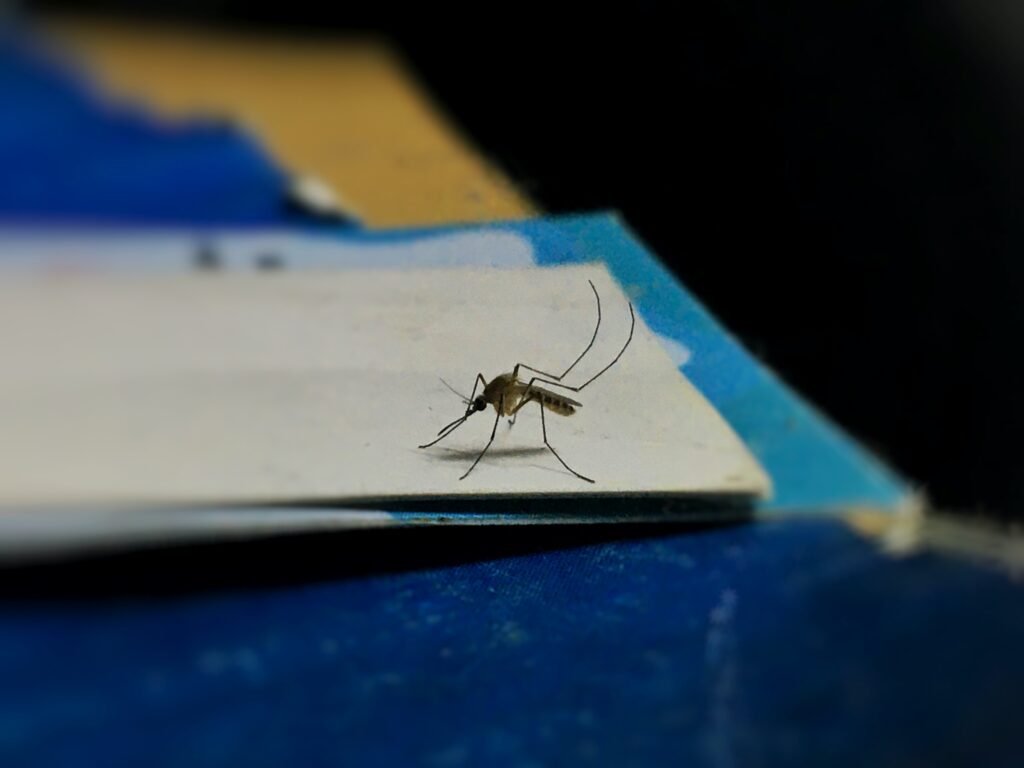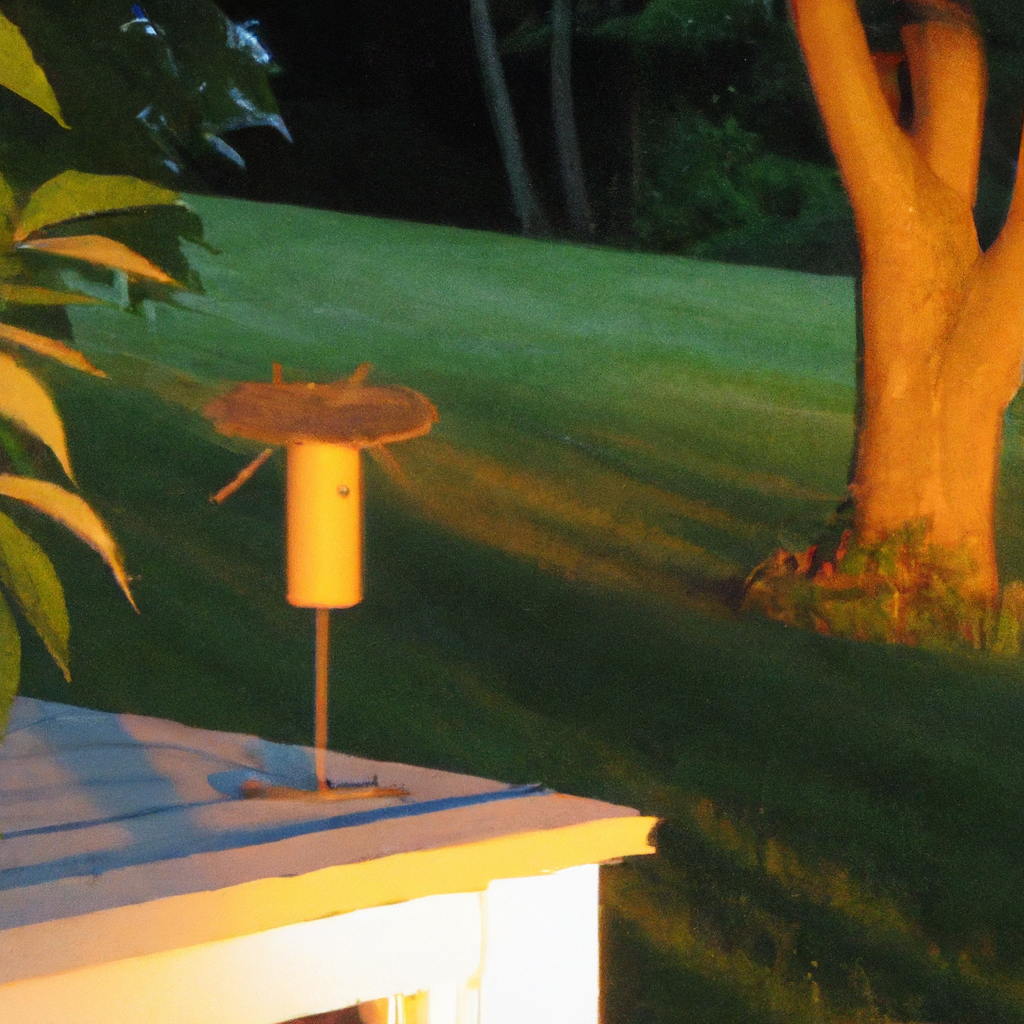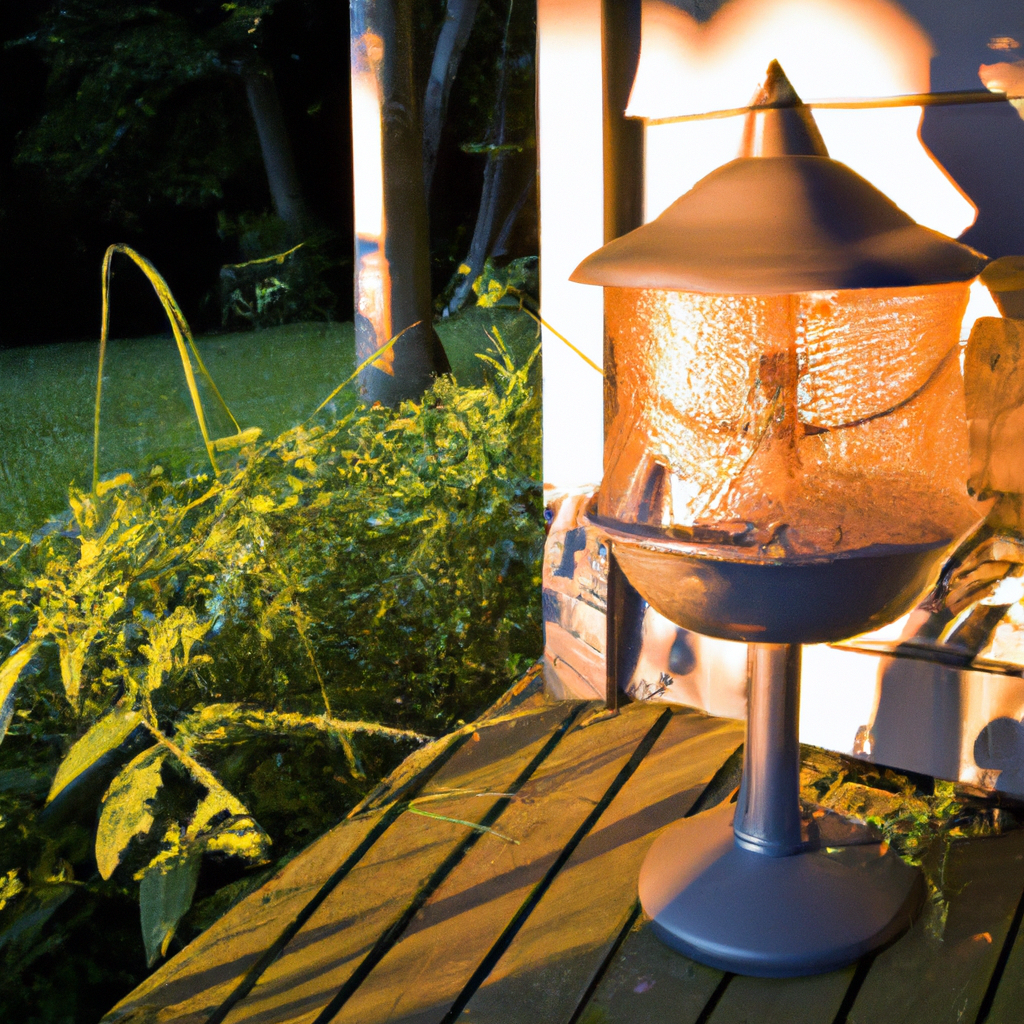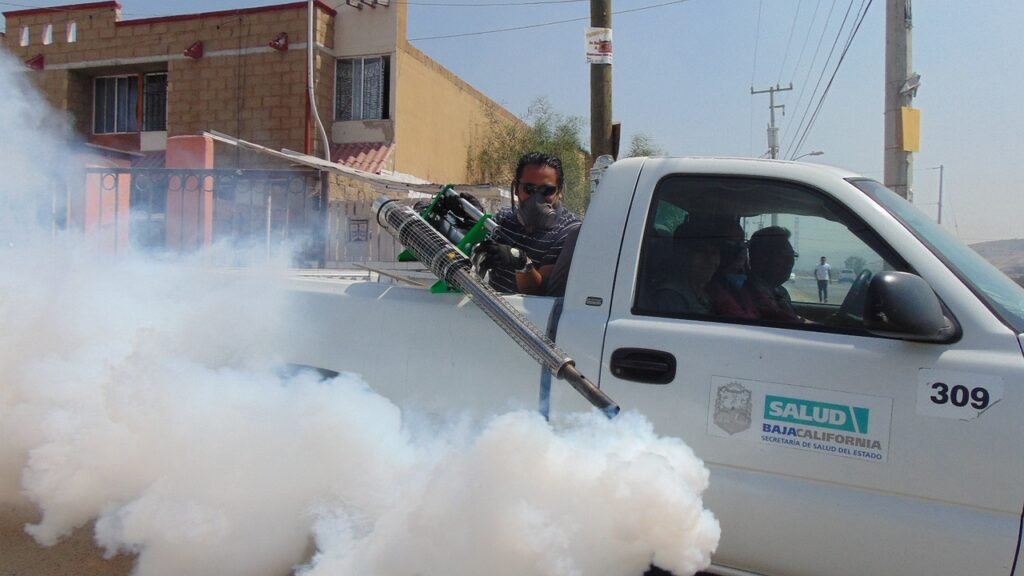Imagine enjoying a peaceful summer evening in your backyard, surrounded by the gentle breeze and the sound of chirping birds. Suddenly, a swarm of blood-thirsty mosquitoes descends upon you, ruining the tranquility and leaving you covered in itchy welts. We’ve all experienced the annoyance and discomfort caused by these pesky insects. In this article, we will explore some effective mosquito control methods specifically tailored for Rhode Island, ensuring you can reclaim your outdoor space and enjoy the summer to the fullest. From natural remedies to professional services, we’ve got you covered in the battle against mosquitoes. So, get ready to learn how to combat these annoying pests and reclaim your outdoor haven.


Understanding the Mosquito Problem in Rhode Island
Rhode Island, like many other regions, faces a significant mosquito problem. These tiny insects not only annoy us but also pose health risks. To effectively combat this issue, it is crucial to understand the types of mosquitoes prevalent in Rhode Island, the areas most prone to mosquito infestation, and the mosquito-borne diseases that pose a threat to the residents.
Types of mosquitoes in Rhode Island
Rhode Island houses various mosquito species, including Aedes albopictus and Culex pipiens. Aedes albopictus, commonly known as the Asian tiger mosquito, is an aggressive daytime biter that breeds in small containers. On the other hand, Culex pipiens, also known as the Northern house mosquito, is primarily active during dusk and dawn and is responsible for the transmission of diseases such as West Nile Virus.
Areas most prone to mosquito infestation
Certain areas in Rhode Island are more susceptible to mosquito infestations due to factors such as stagnant water sources, dense vegetation, and proximity to wetlands or marshes. Coastal regions, with their numerous salt marshes, tend to have higher mosquito populations. Additionally, urban areas with inadequate waste management and standing water sources can exacerbate the mosquito problem.
Mosquito-borne diseases prevalent in Rhode Island
Mosquito-borne diseases are a significant concern in Rhode Island. The most prevalent diseases include West Nile Virus and Eastern Equine Encephalitis (EEE). These viruses can cause severe illnesses and, in rare cases, even lead to fatalities. It is essential to take mosquito control measures to prevent disease transmission and protect public health.
Importance of Mosquito Control in Rhode Island
Implementing effective mosquito control strategies in Rhode Island is of paramount importance due to its impact on public health, outdoor activities, tourism, and prevention of disease outbreaks.
Impact on public health
Mosquitoes are known vectors of several harmful diseases, including West Nile Virus, EEE, and Lyme disease. By controlling the mosquito population, we can significantly reduce the risk of disease transmission, protecting the health and well-being of Rhode Island residents.
Effect on outdoor activities and tourism
Rhode Island’s natural beauty attracts outdoor enthusiasts and tourists from around the world. However, persistent mosquito infestations can hamper these outdoor activities, leading to a decline in tourism. Implementing effective mosquito control measures ensures that residents and visitors can enjoy the state’s outdoor offerings without the constant annoyance and health risks posed by mosquitoes.
Role in preventing disease outbreaks
Mosquitoes have the potential to cause disease outbreaks in Rhode Island. By implementing comprehensive mosquito control strategies, we can minimize the risk of disease transmission and prevent the spread of mosquito-borne illnesses. Timely and effective control methods can help curb disease outbreaks and protect the overall public health in the state.
Government Initiatives for Mosquito Control
The government plays a crucial role in implementing mosquito control measures in Rhode Island. Both state and local governments actively work to minimize the mosquito population and mitigate the risks associated with mosquito-borne diseases.
State government policies and programs
The Rhode Island Department of Environmental Management (DEM) oversees various policies and programs related to mosquito control. They collaborate with local health departments, state agencies, and research institutions to conduct surveillance, monitor mosquito populations, and provide education on mosquito control measures. The DEM also ensures that insecticides and other control methods used are safe and environmentally friendly.
Local government efforts
Local governments in Rhode Island actively engage in mosquito control initiatives. They often establish their mosquito control programs or collaborate with regional organizations to conduct larval and adult mosquito control activities. Local governments regularly inspect and treat standing water sources, conduct mosquito trapping and monitoring, and disseminate public education materials to raise awareness among residents.
Partnerships with private pest control agencies
To augment their mosquito control efforts, government agencies in Rhode Island often collaborate with private pest control agencies. These agencies provide specialized expertise and resources to tackle mosquito infestations. By leveraging the partnership between governments and private entities, mosquito control measures can be implemented more efficiently and comprehensively.
Household Mosquito Control Methods
While government initiatives are crucial, individual households also play a vital role in controlling the mosquito population. By implementing various mosquito control methods within their homes and surrounding areas, residents can significantly reduce the mosquito presence.
Proper waste management
One of the critical factors contributing to mosquito breeding is improper waste management. By ensuring that garbage bins are tightly sealed and regularly emptied, residents can eliminate potential breeding sites for mosquitoes. It is important to dispose of water-containing items like discarded tires, cans, and containers as they can serve as breeding grounds for mosquitoes.
Indoor mosquito traps
Indoor mosquito traps help reduce the number of mosquitoes inside your home. These traps use attractants such as light or carbon dioxide and capture mosquitoes, preventing them from biting and laying eggs. By placing these traps strategically in areas prone to mosquito entry, you can minimize mosquito populations indoors.
The use of window and door screens
Installing window screens and door screens is an effective way to keep mosquitoes out of your home while still enjoying fresh air. These screens act as a physical barrier, preventing mosquitoes from entering your living spaces. Regularly inspect and repair damaged screens to ensure their effectiveness in keeping mosquitoes at bay.
Home maintenance tips to eliminate mosquito breeding sites
Regular maintenance of your property can eliminate potential mosquito breeding sites. Keep gutters clean and clear of debris to prevent water accumulation. Fill in low-lying areas in the yard that may collect water. Additionally, ensure that outdoor containers are regularly emptied or tightly covered to prevent mosquitoes from laying eggs in stagnant water.


Community-Based Mosquito Control Strategies
Effective mosquito control often requires a concerted effort from the entire community. By implementing community-based mosquito control strategies, residents can collectively address the mosquito problem and reduce mosquito populations in their neighborhoods.
Community cleanup drives
Organizing community cleanup drives can significantly impact mosquito populations. By removing debris, clearing blocked drains, and cleaning up potential mosquito breeding sites, residents can eliminate stagnant water sources and reduce mosquito breeding grounds. These cleanup drives often involve collaboration between residents, local governments, and community organizations.
Installation of mosquito control systems in public spaces
Mosquito control systems, such as mosquito traps or misting systems, can be installed in public spaces to target and reduce mosquito populations. These systems utilize attractants and other methods to lure and eliminate mosquitoes, making public areas more enjoyable and safe for residents.
Public awareness and education campaigns
Raising awareness and educating the public about mosquito control measures is crucial in curbing mosquito populations. Public awareness campaigns can include distributing informational materials, organizing workshops, and conducting educational sessions in schools and community centers. By empowering residents with knowledge, they can actively participate in mosquito control efforts and adopt preventive measures.
Natural Mosquito Control Options
For those seeking environmentally friendly mosquito control methods, several natural options are available. These methods rely on natural elements to repel or control mosquito populations, minimizing the use of chemicals.
Use of mosquito-repelling plants
Certain plants are known for their mosquito-repelling properties. Examples include citronella, catnip, and lavender. By strategically planting these plants in your garden or outdoor areas, you can create a natural barrier against mosquitoes. Additionally, crushing or rubbing the leaves of these plants releases their essential oils, which act as natural repellents.
Introduction of natural predators
Introducing natural predators of mosquitoes, such as dragonflies or mosquito fish, can help control mosquito populations. Dragonflies feed on mosquitoes, reducing their numbers naturally. Similarly, mosquito fish consume mosquito larvae, preventing them from maturing into adult mosquitoes. These biological control methods can provide long-term mosquito control without the use of chemicals.
Environment friendly repellents and traps
Several environmentally friendly mosquito repellents and traps are available in the market. These products use natural ingredients such as essential oils or pheromones to repel or trap mosquitoes. Environmentally friendly mosquito repellents minimize the impact on the ecosystem while still providing effective mosquito protection.


Chemical Methods for Mosquito Control
In some cases, chemical methods may be necessary to control mosquito populations effectively. However, it is crucial to prioritize safety and use these methods responsibly.
Safe use of insecticides
If the mosquito population becomes a significant public health concern, the controlled use of insecticides may be necessary. However, it is essential to follow recommended guidelines and regulations to ensure the safe and responsible use of these chemicals. Only authorized individuals or pest control professionals should handle and apply insecticides.
Professional pest control services
In situations where mosquitoe populations are particularly challenging to control, it may be necessary to seek professional pest control services. These experts possess the knowledge and experience to assess the mosquito problem and implement appropriate control methods effectively. They are trained in the safe and responsible use of insecticides and other control measures.
Chemical treatment of stagnant water bodies
Treating stagnant water bodies, such as ponds or ditches, with larvicides can effectively target mosquito larvae. These larvicides kill mosquito larvae before they mature into biting adults. However, it is crucial to use approved and environmentally friendly larvicides in compliance with regulations.
Modern Technological Solutions for Mosquito Control
Advances in technology have paved the way for innovative mosquito control measures that utilize modern tools and techniques.
Electronic mosquito repellents
Electronic mosquito repellents emit ultrasonic sounds that are unpleasant to mosquitoes and deter them from approaching. These portable devices are battery-operated and can be used indoors or outdoors. While their effectiveness may vary, many individuals find them useful in reducing mosquito bites.
Genetically modified mosquitoes
In recent years, genetically modified mosquitoes have been developed as a potential control method. These mosquitoes are engineered to carry a gene that either prevents their own reproduction or produces offspring that die at an early stage. By releasing these mosquitoes into the wild, their mating with wild mosquitoes can reduce the population over time.
Latest innovations in mosquito control technology
Ongoing research continues to develop new technologies for mosquito control. Innovations include automated mosquito control systems that detect and target mosquitoes specifically, advanced trapping methods using attractive lures or pheromones, and precision sprayers that deliver insecticides more effectively. Incorporating these technological advancements into mosquito control strategies can enhance their efficiency and effectiveness.


Effective Personal Protection Measures
While implementing various mosquito control methods, it is crucial to protect yourself from mosquito bites through personal precautions.
Proper clothing
Covering your skin by wearing long sleeves, long pants, and socks can provide a physical barrier between mosquitoes and your skin. Choosing lightweight, breathable fabrics can ensure comfort while minimizing mosquito bites. Additionally, wearing light-colored clothing can make it easier to spot mosquitoes and prevent their contact.
Use of personal repellents
Applying insect repellents to exposed skin can deter mosquitoes from biting. Look for repellents containing active ingredients like DEET, picaridin, or oil of lemon eucalyptus. Apply the repellent according to the product instructions, and reapply as necessary. Additionally, consider using mosquito repellent candles or incense when spending time outdoors.
Travel precautions during mosquito season
If you are traveling during mosquito season, especially to areas known for mosquito-borne diseases, take extra precautions. Research the destination’s mosquito situation and consider using bed nets or sleeping in air-conditioned or screened-in accommodations. Wear mosquito repellent throughout the day, particularly during peak mosquito activity times.
Evaluating the Effectiveness of Mosquito Control Methods
To ensure the efficiency of mosquito control measures, evaluation and continuous improvement are crucial. By assessing the effectiveness of various methods, we can refine and adapt our strategies for better results.
Indicators of successful mosquito control
Monitoring mosquito populations, disease incidence rates, and public health data are invaluable in determining the effectiveness of mosquito control measures. A decline in mosquito populations, reduced disease transmission, and positive feedback from residents indicate the success of implemented control methods.
Challenges in mosquito control
Mosquito control efforts may face challenges due to factors such as changing weather patterns, limited resources, or resistance to control methods. It is crucial to adapt mosquito control strategies to overcome these challenges effectively. This may involve ongoing research, collaboration with experts, and community engagement.
Improving current strategies based on evaluation findings
Regular evaluation and monitoring of mosquito control methods allow for the refinement and improvement of existing strategies. By identifying strengths and weaknesses, we can incorporate new technologies, adjust treatment schedules, and enhance public education initiatives. Continual improvement ensures that mosquito control efforts remain effective and responsive to evolving challenges.
In conclusion, effective mosquito control in Rhode Island requires a multi-faceted approach that combines government initiatives, household measures, community-based strategies, natural control options, chemical methods, technological advancements, and personal protection measures. By utilizing a comprehensive and targeted approach, we can successfully combat the mosquito problem, safeguard public health, and create a more enjoyable environment for residents and tourists alike.


Your Expert in Animal Control and Extermination. Trust our experience for humane, effective pest management, protecting your property and ensuring peace of mind with Michael S.





